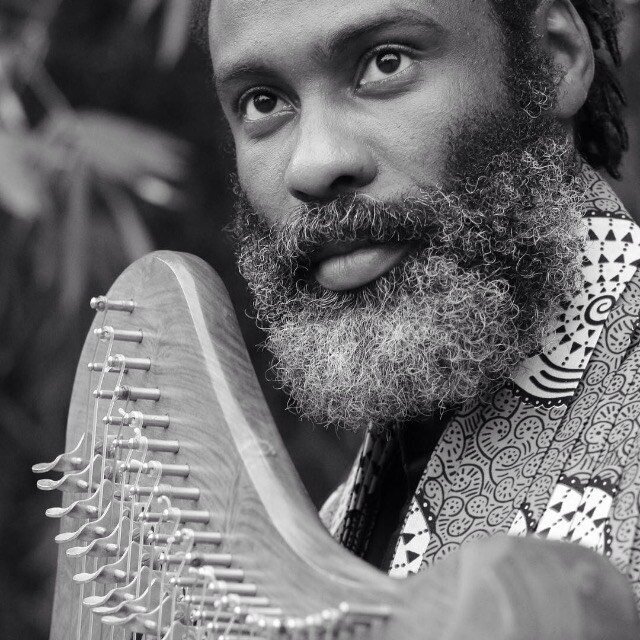Summary of the Event
The event kicked off at 7am GMT with a morning yoga video performed by Adriene.The Virtual Symposium hosted over 25 renowned sustainability leaders, environmentalists, researchers, specialists on health, botanic conservation, resource management sustainable agriculture and building from around the world. Speaker such as Jeffrey Sachs, Adenike Akinsemolu, Marc Rosen, amongst others share their insights on our path towards sustainable development.
LISTEN TO PODCAST
ABOUT THE SPEAKER
Walter Spearheart (full names Walter Kolade Spearheart) is mostly known as a musician, composer and music therapist.
ABOUT THE MODERATOR
Linda Moss is a handcrafted jewellery maker and the owner of Nzuri Gems, a handmade jewellery company.
Q & A
Linda Moss: What impact has music had on the conservation of nature and what is the way forward?
Walter Spearheart: It is difficult to think of music without thinking about the lifestyle of people who are playing that music or performing the music. So when you think of music, you could naturally think of folklore and then culture. I would not like us to think of music alone but to think of music, folklore as one of the heritage of people and also think of culture. I would say that Africans have naturally had a sense of conservation when it comes to nature and so in their songs, folklore, folktales they use many elements like trees, rivers, animals to tell their stories and to describe things even in the music and this goes a long way to show their high natural respect and regards for nature. Having said that I think that it would be helpful to find something profound in our music, a relationship between our music, folklore, culture, something that is truly indigenous and that would go a long way in increasing the consciousness of the need to have regards or respect for nature and the forces in nature.
Linda Moss: In The Principles of Green and Sustainability Science, Dr. Akinsemolu posited that social sustainability is instrumental in measuring 'soft' indices, like happiness in a community. What role has your genre of music played in elevating individual and communal happiness?
Walter Spearheart: To answer that question, I would like to tell some stories, experiences of mine as a harp music therapist. I have had the opportunity, privilege to play music at the hospital, to elderly people, people with dementia, people recovering from some illness or the other. The music is generally very soothing, helps to keep people calm, and gives people great sense of hope. It’s so effective in the area of hospital care and palliative care. It’s accepted and utilized around the world for this purposes. It’s generally happy music most especially for the harpist.
Quotes
“I would say that Africans have naturally had a sense of conservation when it comes to nature and so in their songs, folklore. ”
Top Comment (s)
Love this session-Foluke Arijeniwa
FURTHER READING
Kagan, Sacha & Kirchberg, Volker.2016. Music and sustainability: organizational cultures towards creative resilience – A review. Journal of Cleaner Production.
Jennifer L. Publicover, Tarah S. Wright, Steven Baur & Peter N. Duinker .2018. Music as a tool for environmental education and advocacy: artistic perspectives from musicians of the Playlist for the Planet, Environmental Education Research.




